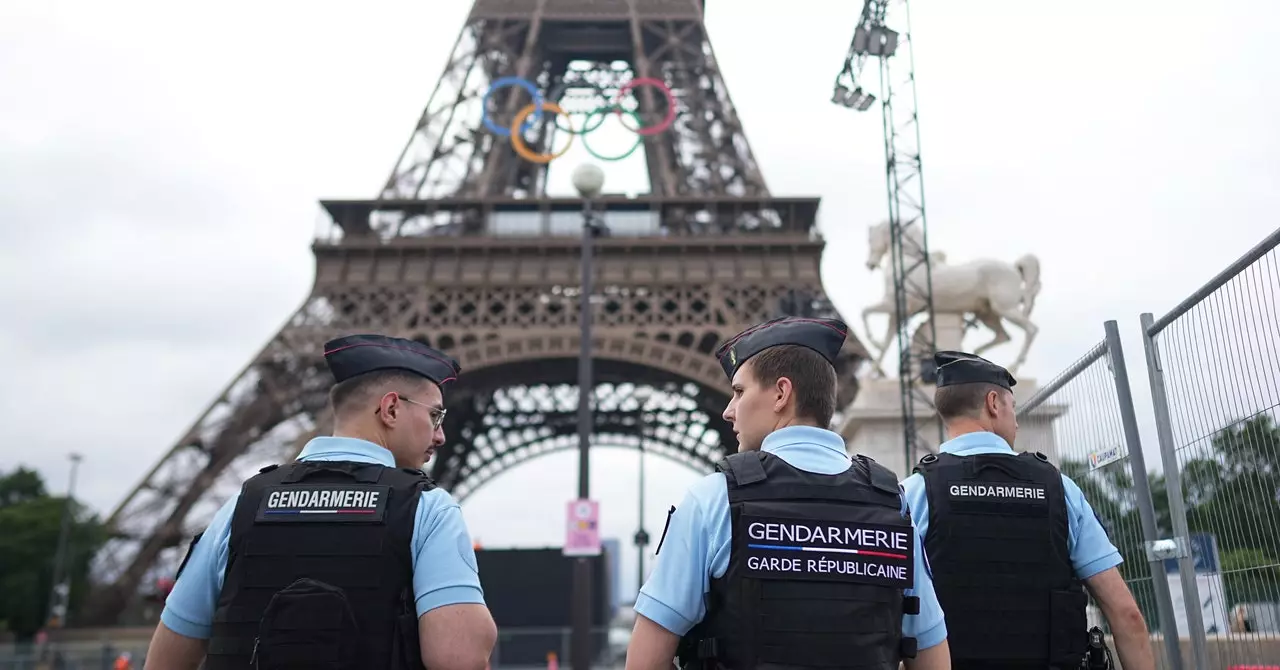Matthias Houllier, cofounder of Wintics, believes that transforming CCTV cameras into a powerful monitoring tool can significantly enhance security measures. Wintics, along with three other French companies, has won contracts to deploy their algorithms at the Olympics. According to Houllier, the sheer number of cameras makes it impossible for police officers to monitor every feed individually. Wintics initially gained recognition in 2020 when it secured a public contract in Paris to collect data on cyclists and aid in the planning of more bike lanes. By integrating their algorithms with existing traffic cameras, Wintics can identify and count cyclists on busy streets effectively.
The technology developed by Wintics has evolved to analyze various aspects of public spaces. Using open source and synthetic data, their algorithms can count the number of people in a crowd or detect individuals falling to the ground. The system alerts operators when certain thresholds are exceeded, prompting further investigation. Houllier emphasizes that the technology does not make automatic decisions but rather serves as a tool to draw the operator’s attention. Interior ministry officials have been trained to utilize Wintics’ software and determine how to deploy it based on specific circumstances.
While Houllier asserts that Wintics’ algorithms prioritize privacy by avoiding facial recognition and other invasive techniques, privacy activists like Noémie Levain remain skeptical. Levain and her group in the 20th arrondissement of Paris are actively opposing what they perceive as “algorithmic surveillance” encroaching on public spaces. They argue that analyzing images of individuals still constitutes a breach of personal and biometric data, akin to facial recognition technology. Levain is worried that AI surveillance systems will persist in France even after the conclusion of the Olympics, potentially enabling discriminatory practices by law enforcement.
As tensions rise over security measures and surveillance technologies in Paris, residents like Levain are contemplating leaving the city during the Olympic period. The presence of security barriers and increased police surveillance have fueled fears of a dystopian urban environment, prompting calls to resist the “authoritarian capture of public spaces.” Levain expresses concerns that the deployment of AI algorithms will perpetuate existing biases within law enforcement and further marginalize certain communities. The debate surrounding the use of AI for surveillance purposes highlights the complex intersection of security, privacy, and personal freedoms.
The deployment of AI surveillance technologies at major events like the Olympics raises important questions about the balance between security and privacy. While proponents argue that such technologies can enhance safety measures and protect public spaces, critics highlight the potential risks of mass surveillance and the infringement of personal liberties. As the debate intensifies, finding a middle ground that addresses security concerns without compromising individual rights remains a key challenge for policymakers and technology developers. The future of AI surveillance will undoubtedly continue to spark contentious discussions about ethics, regulation, and the role of technology in shaping our societies.


Leave a Reply